Install macOS on Windows in VMware Workstation using a Virtual Disk Image
(UPDATED OCT 2022) How to install macOS (High Sierra 10.13, Mojave 10.14, Catalina 10.15, Big Sur 11) on Windows 10 in a VMware Workstation virtual machine including Google drive links to download the VMware VMDK virtual disk images.
You may have spent some time reading other blogs that didn't work...If you get to the end of this article and you have macOS running on VMware workstation. Please buy me a coffee!
This example is for installing High Sierra 10.13 on Windows 10 using VMware Workstation 15. This guide will also work for other versions of macOS e.g. Mojave 10.14, Catalina 10.15 or Big Sur 11. Google drive links to download the virtual disk images for these macOS versions are also included below.
1 Run VMWare macOS Unlocker
2 Download macOS VMware VMDK disk image file from Google Drive
3 Create macOS VMware Workstation Virtual Machine
4 Edit the Virtual Machine settings
5 Attach the recovery VMDK disk image
6 Boot virtual machine from the recovery disk
7 Run Disk utility to erase the OS disk
8 Install macOS on the virtual machine
9 Install VMware tools
1 Run VMWare macOS Unlocker
We'll need to run macOS Unlocker to remove VMware workstations restrictions for running Apple virtual machines. After running macOS Unlocker we will be able to create macOS guest virtual machines.
macOS Unlocker V3.0 for VMware Workstation
https://github.com/paolo-projects/unlocker/releases
Download unlocker.zip and extract
Right click win-install.cmd - run as Administrator
2 Download macOS VMware VMDK disk image file from Google Drive
Or, you can create the disk images yourself following the other guides on this site.
Download macOS VMware VMDK disk image files
https://techlabs.blog/categories/guides/download-macos-vmware-vmdk-disk-image-files
Create a VMware VMDK disk image file for installing macOS (High Sierra, Mojave, Catalina) on VMware Workstation on Windows
https://techlabs.blog/categories/guides/create-a-vmware-vmdk-disk-image-file-for-installing-macos-high-sierra-mojave-catalina-on-vmware-workstation-on-windows
Create a bootable virtual disk image (VMDK) for installing macOS (Monterey, Ventura) on VMware workstation
https://techlabs.blog/categories/guides/create-a-bootable-virtual-disk-image-vmdk-for-installing-macos-monterey-ventura-on-vmware-workstation
3 Create macOS VMware Workstation Virtual Machine
Create a New Virtual Machine
What type of configuration do you want - Typical
Guest Operating System Installation - I will install the operating system later
Select a Guest Operating system
Apple Mac OS X - choose the right version for whichever macOS you are installing
e.g. High Sierra macOS 10.13
Enter a name for the Virtual Machine
Location - check the destination drive has enough space for the virtual machine disk files, you'll need at least 100GB free
Specify Disk Capacity
Maximum disk size: 100GB
Store virtual disk as a single file - this is the best option for performance
Ready to Create Virtual machine - Finish
4 Edit the Virtual Machine settings
Memory 8GB
I have 16GB of physical memory available, I'm allocating half of that to the virtual machine to get the best performance
Number of processors: 2
Number of cores per processor: 2
Again I'm allocating half of my available physical CPU cores so my macOS virtual machine runs well
CD/DVD - untick connect at power on
We are not using the CD/DVD drive for now so this can be turned off
5 Attach the recovery VMDK disk image
We need to attach the macOS recovery disk image (that you downloaded in step 2) so we can boot the VM and run the macOS installer. The VM will have two hard disks attached - the recovery disk macOS-recovery.vmdk and another 100GB hard drive that we will install macOS onto
Hardware - Add
Hardware Type - Hard Disk
Select a disk type - SATA
Select a disk - Use an existing virtual disk
Select an existing disk
Browse for and select macos-recovery.vmdk then click finish
Keep existing format
6 Boot virtual machine from the recovery disk
Power on the Virtual Machine
macOS installer will start to load
Select your language
7 Run Disk utility to erase the OS disk
Select the 100GB virtual disk - Erase
Name: Hard Drive
Format: Mac OS Extended (Journaled)
Scheme: GUID Partition Map
Quit Disk Utility when the erase has finished
8 Install macOS on the virtual machine
Reinstall macOS - Continue
Install macOS - Continue
Agree to the license agreement
Select the 100GB Hard Drive then click Install
Complete macOS setup - choose your country, keyboard layout, enter Apple ID etc
Shutdown the VM
Edit the virtual machine settings and remove boot disk macos-recovery.vmdk
9 Install VMware tools
Power on the VM again and Install VMWare tools
Download VMWare tools for macOS darwin.iso
Download VMware tools for macOS darwin.iso
Install VMware Tools
Continue
Install
Click Continue Installation and enter your password when prompted
Click the lock to make changes and enter your password again when prompted
System software from developer "VMWare" - click allow
Restart the Mac virtual machine after installing VMware tools
Running macOS in a Virtual Machine using AMD Processors
UPDATE 17/5/2022
Adding these notes to the article from the comments below as they might be useful for anyone trying to get a macOS VM working on AMD hardware. Thanks to everyone who took the time to comment and give feedback!Guest - Jerry on Friday, 15 April 2022 20:11
If you have problems when the apple logo appears a nothing happens for amd hardware add the following to the vmx file:
smc.version = "0" cpuid.0.eax = "0000:0000:0000:0000:0000:0000:0000:1011" cpuid.0.ebx = "0111:0101:0110:1110:0110:0101:0100:0111" cpuid.0.ecx = "0110:1100:0110:0101:0111:0100:0110:1110" cpuid.0.edx = "0100:1001:0110:0101:0110:1110:0110:1001" cpuid.1.eax = "0000:0000:0000:0001:0000:0110:0111:0001" cpuid.1.ebx = "0000:0010:0000:0001:0000:1000:0000:0000" cpuid.1.ecx = "1000:0010:1001:1000:0010:0010:0000:0011" cpuid.1.edx = "0000:0111:1000:1011:1111:1011:1111:1111" smbios.reflectHost = "TRUE" hw.model = "MacBookPro14,3" board-id = "Mac-551B86E5744E2388"
Guest - Htom on Saturday, 30 April 2022 16:02
I was getting an error about "This virtual machine requires AVX2 but AVX is not present. This virtual machine cannot be powered on.".
I changed virtualHW.version in the .vmx to "10" to fix this. This apparently limits the USB to 2.x compatibility, but I can live with that.
It looks like by default VMWare sets USB compatibility to 1.1, and the VM did not recognize my USB mouse or keyboard.
Changing that to 2.x got those working.
The VM you end up with will also work with Linux VMWare WorkStation. You need the Linux VMWare unlocker (in the same zip file that has the Windows one).
https://techlabs.blog/categories/guides/solved-increase-video-memory-vram-for-a-macos-virtual-machine-running-on-vmware-workstation
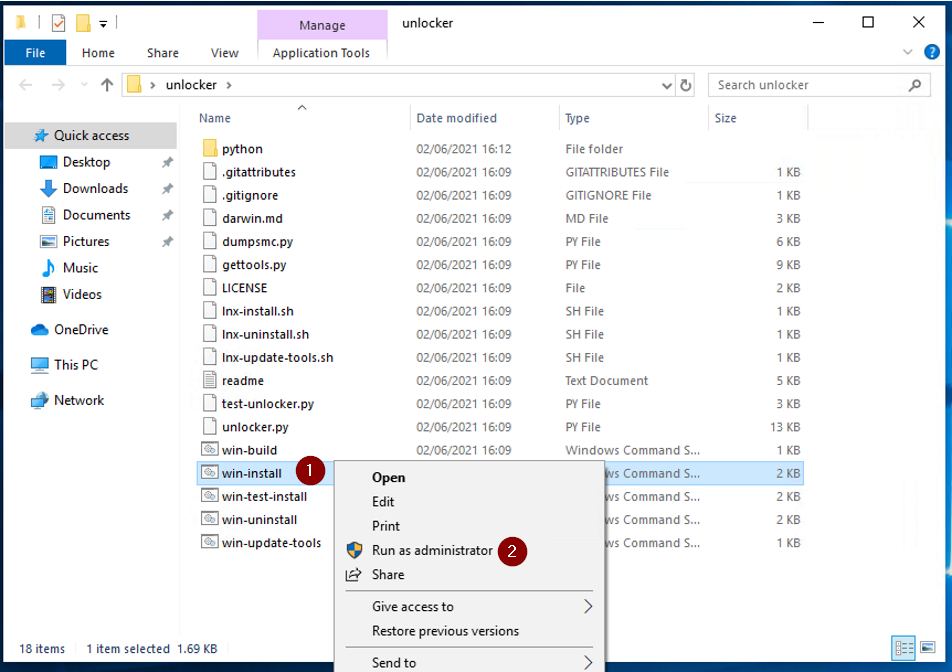
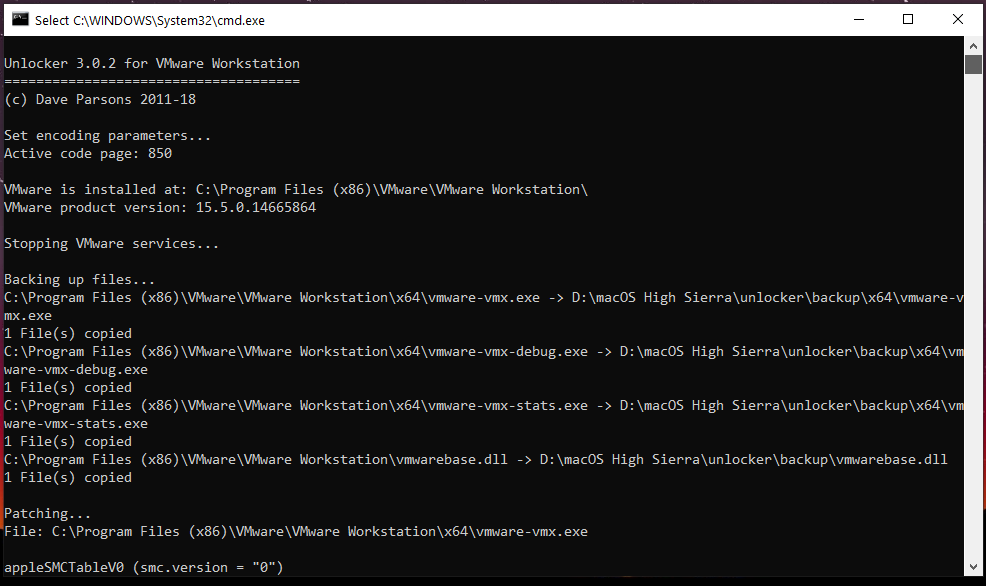










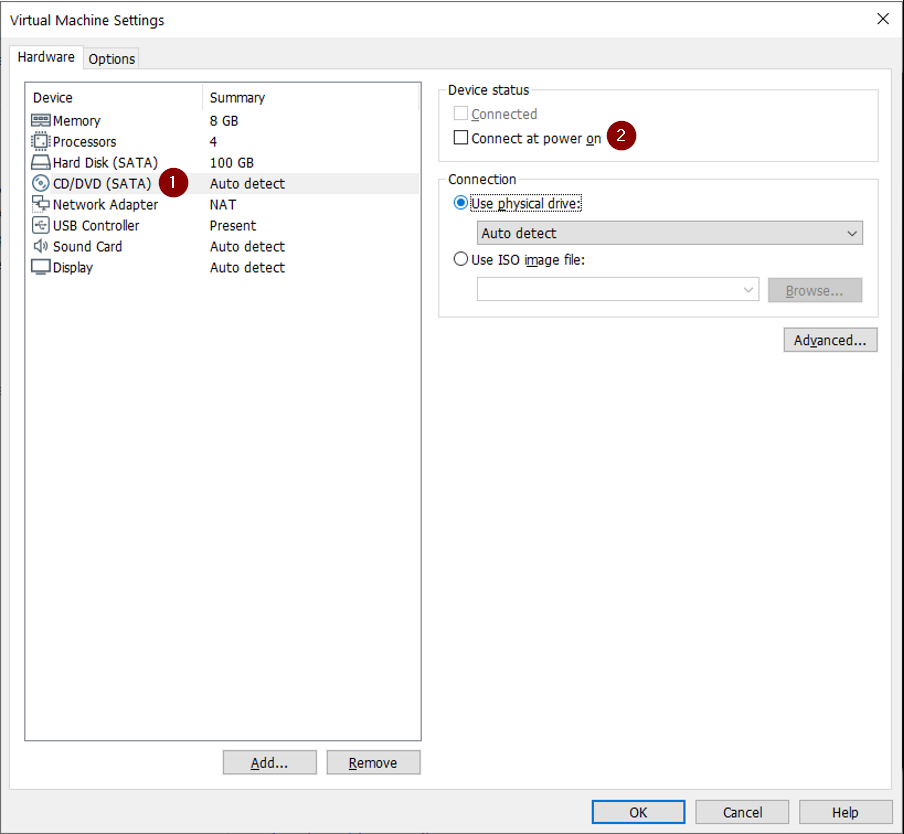






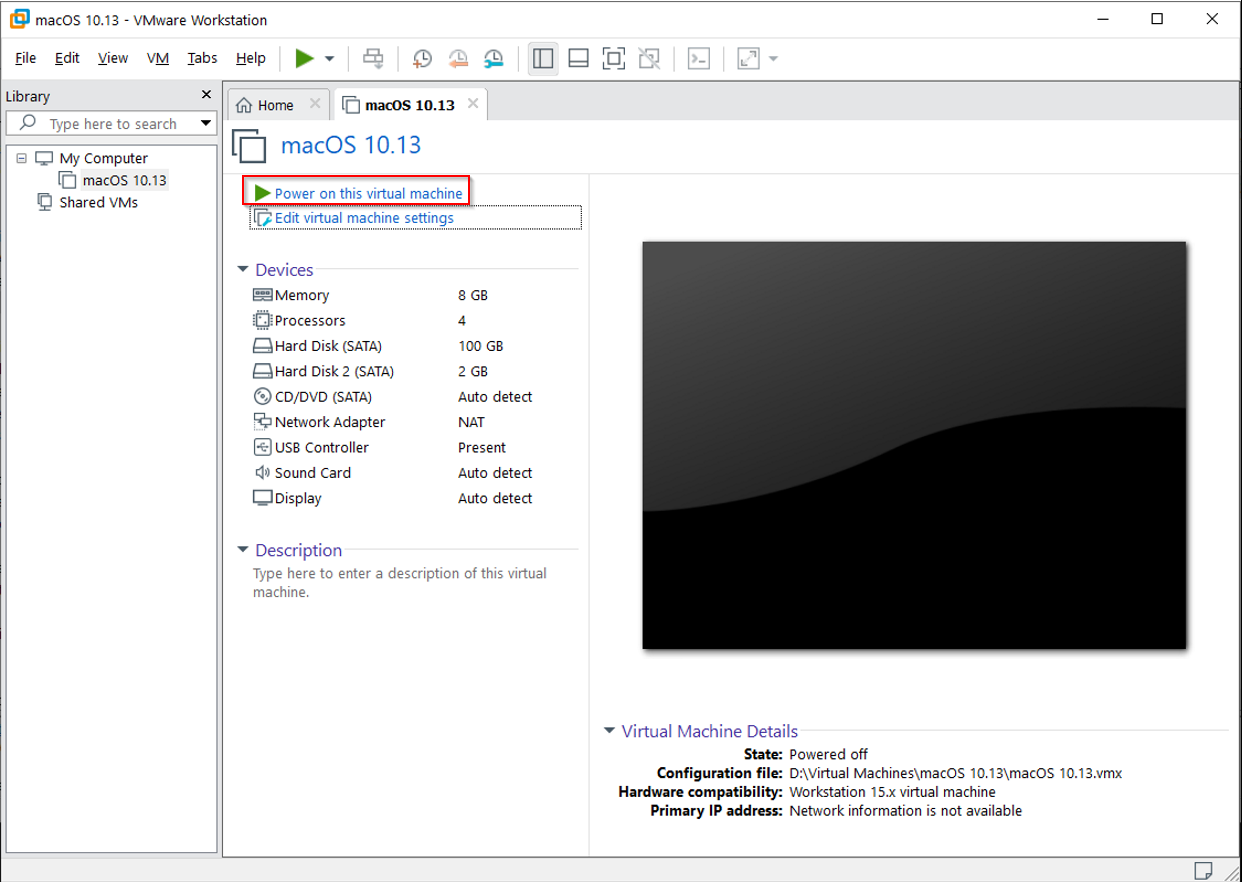

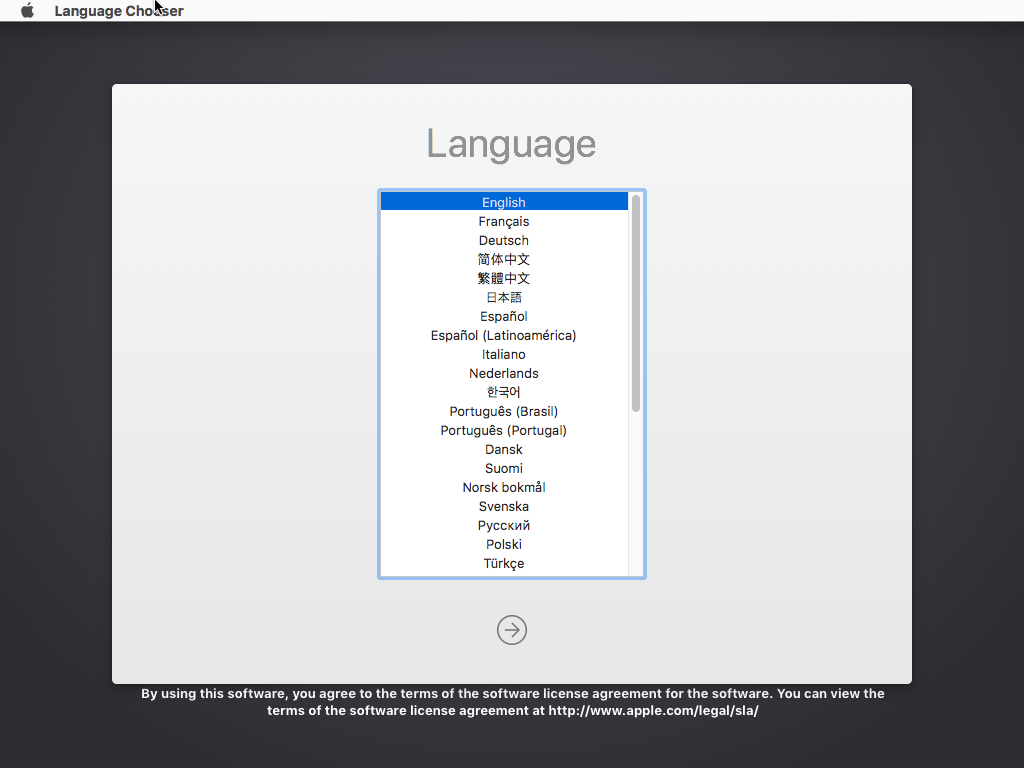






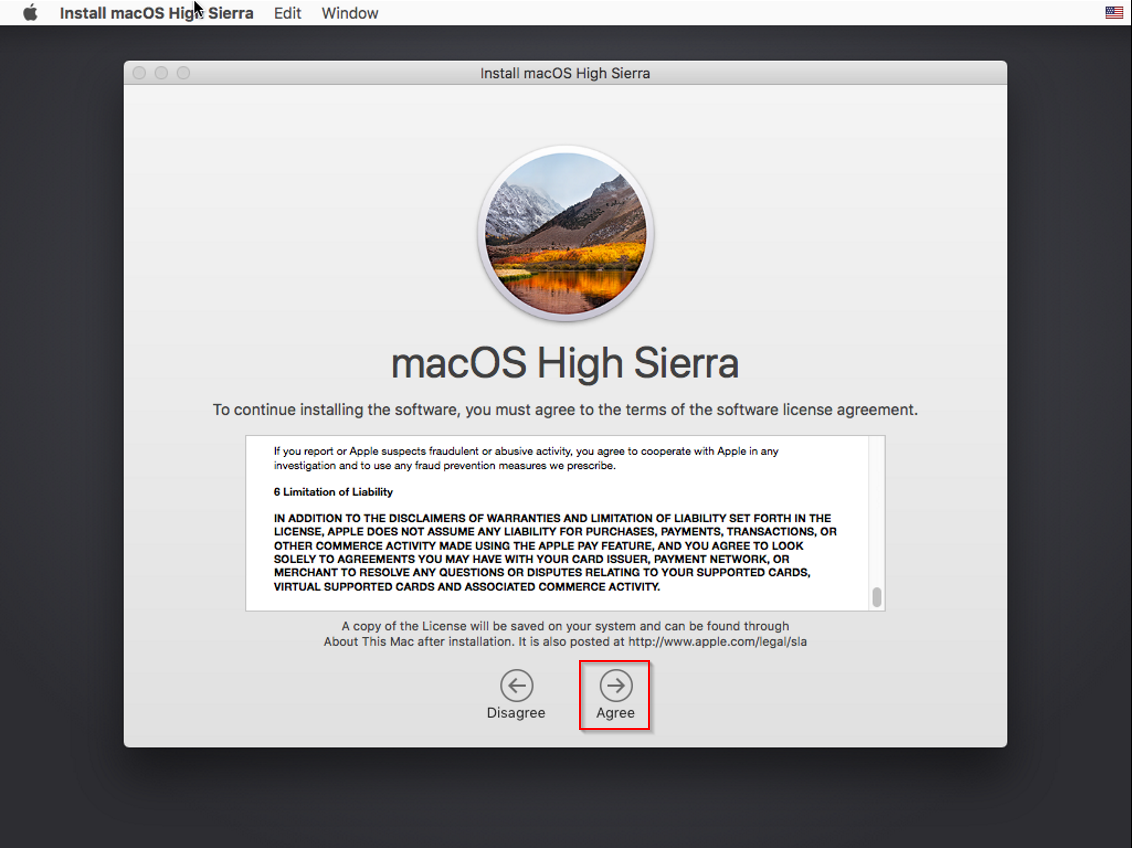
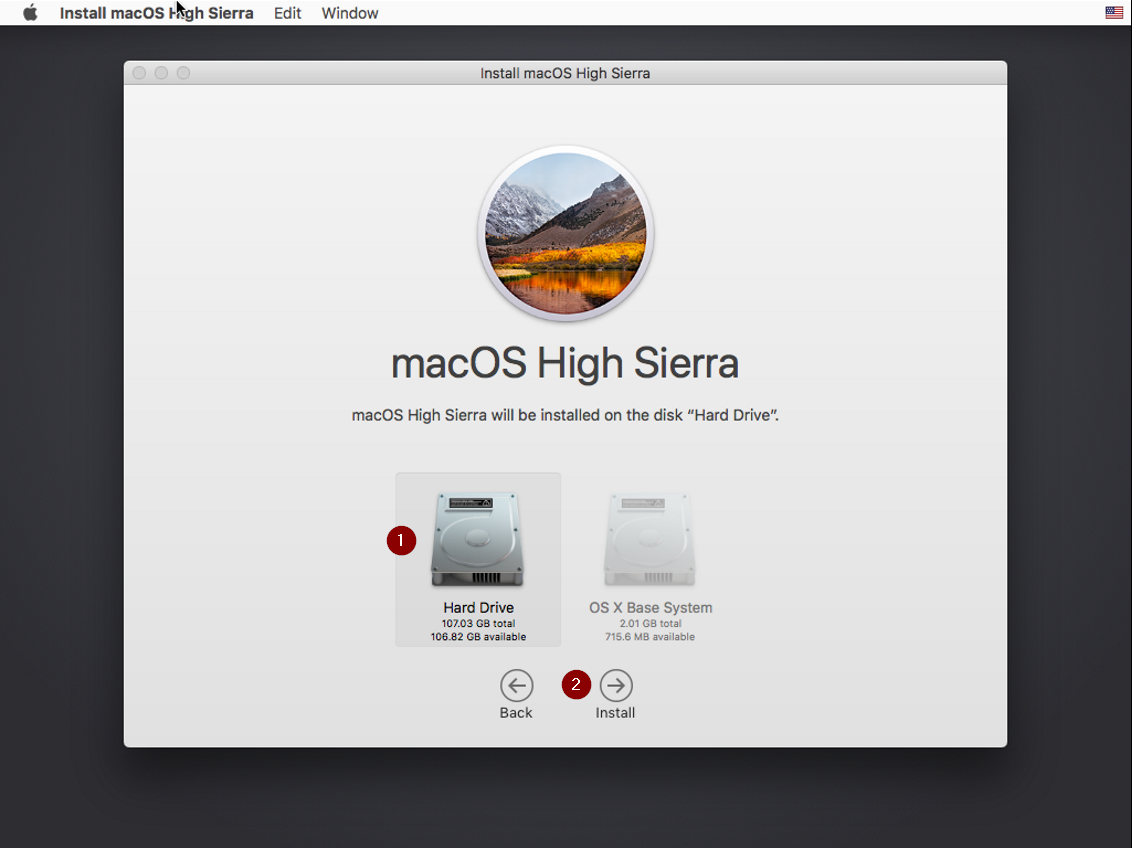




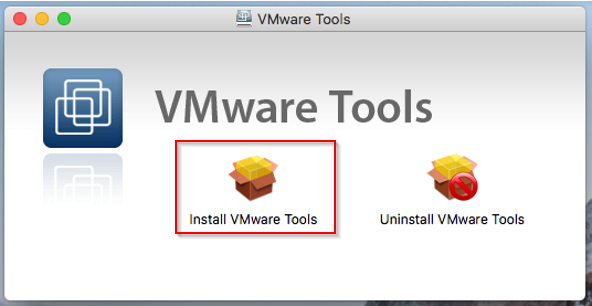








Comments 113
Thanks for this great article...I was able to install it with ease, it took great time to download tho but it worth it...
Thanks a lot.. i was able to install mac os with your guide.. all the best.
Excellent guide. Thanks for the tutorial and links. It worked... except, I had to go manually download VMware Tools.
I agree about this being an excellent guide and I also had to manually download VMWare Tools in order to install them from within the macOS guest itself. I successfully installed Big Sur and the OS installation itself took about 70 minutes to get to the Welcome/Country selection page.
Appreciate the feedback! I've updated the guide and added a link to download darwin.iso, which includes VMware tools for macOS.
Is it suppose to take over 5 hours to install?
Hi Rigo, no it shouldn't take that long to install... What hardware resources have you give the VM? CPU and memory? Are you using an SSD? What point does the install get stuck? What version of VM workstation are you using? Please let me know. Thanks!
I checked the installer log. It appears to be downloading 12.4gb of installer package. I have a Big Sur ISO. Can I use this instead of the .vmdk file?
Ok, thats because the vmdk files in this guide use the recovery installer which will boot macOS and download the full operating system during setup. This could take some time depending on how fast your Internet is. If you have the MacOS .iso file you can try that instead. Hope that helps!
Yea I thought my big sur ISO's were corrupt but it was just VMware
Can we update to the latest mac OS after it's up and running?
Hi Paul, yes, you can. I was able to upgrade the VM from macOS Catalina to Monterey.
Thanks! What about each time vmware workstation pro gets updated, do we need to run unlocker again?
Hi again. I haven't tested what happens when VMware workstation is upgraded. I think if you don't see the option to create a macOS virtual machine, you'll need to rerun macOS unlocker. Hope that helps!
Thank you so much. Is it possible to login in Mac App Store? using iCloud & apple services?
Hi, yes you can login to the Mac App store from within the VM.
I did this myself and every time I try to log in it keeps saying "There was an error connecting to the Apple ID server"
Hi Michael, I have tested this, and it works OK for me. Try rebooting the macos VM. It could be a network/firewall blocking the connection to Apple? Hope that helps!
I believe you need to change the network adapter settings from within VMWare. I believe changing it to bridged did it for me, but I'm not sure.
Hope this helps!
On my virtual machine, the sound stopped working. If possible, do you have a way I can contact you to get more detailed help on this issue? It seems with every update vmWare is doing as much as possible to stop installations of macOS on windows